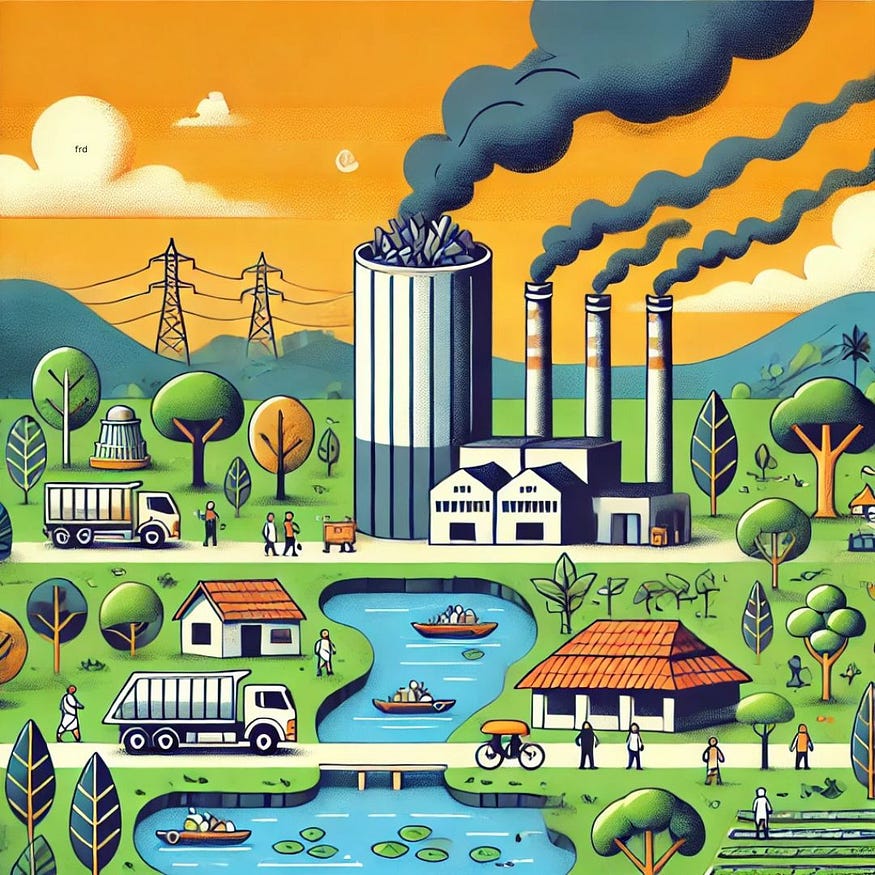Incinerators in Kerala: Waste Incineration is an Environmental Justice Issue

Waste management remains a critical challenge worldwide, and in Kerala, incinerators are often promoted as a solution to tackle mounting waste. However, waste incineration raises significant environmental justice concerns that require closer scrutiny.
The Problem with Waste Incinerators in Kerala
Incinerators in Kerala are increasingly being used to manage municipal and industrial waste. While they promise to reduce waste volumes and generate energy, their environmental and social impacts are profound. The incineration process releases toxic pollutants, including dioxins, furans, and heavy metals, which pose severe health risks to nearby communities.
Kerala’s densely populated areas mean that waste incinerators disproportionately affect marginalized communities living near these facilities. Exposure to air and soil pollution from incineration plants can lead to respiratory illnesses, cancers, and other long-term health issues. This creates an environmental justice issue, as these communities often lack the resources to advocate for cleaner alternatives.
Environmental Impacts of Waste Incineration
- Air Pollution: Incinerators in Kerala contribute to poor air quality by emitting harmful gases. These emissions exacerbate climate change and violate the right to clean air for local populations.
- Resource Depletion: Burning waste destroys valuable materials that could otherwise be recycled, undermining Kerala’s sustainability goals.
- Ash Disposal: The toxic ash residue from incineration needs careful management. Improper disposal can contaminate water and soil, further endangering the environment and public health.
A Call for Sustainable Alternatives
Instead of relying on incinerators in Kerala, a shift toward sustainable waste management practices is essential. Solutions include:
- Enhanced Recycling Programs: Investing in robust recycling systems can reduce the need for incineration while creating jobs and conserving resources.
- Composting Initiatives: Organic waste, a significant component of Kerala’s waste stream, can be composted to produce nutrient-rich fertilizers.
- Waste Reduction Campaigns: Educating citizens on reducing waste generation and promoting reusable materials can have a lasting impact.
The Path Forward
Waste incineration is not merely a technological issue but an environmental justice issue that demands immediate attention. Policymakers, communities, and environmental organizations in Kerala must work together to advocate for cleaner, more equitable waste management solutions. By prioritizing the health and well-being of all residents, Kerala can set a precedent for sustainable and just waste management practices.
In conclusion, while incinerators in Kerala might seem like a quick fix, their long-term implications make them a contentious choice. Embracing sustainable alternatives will not only address the waste crisis but also uphold environmental justice for all.

Comments
Post a Comment